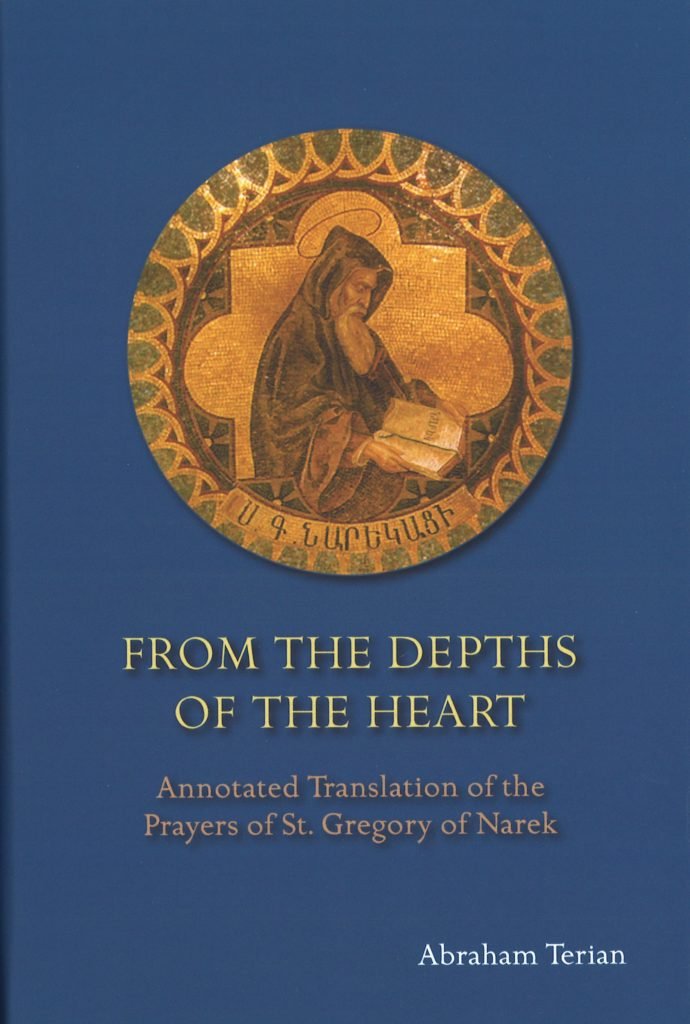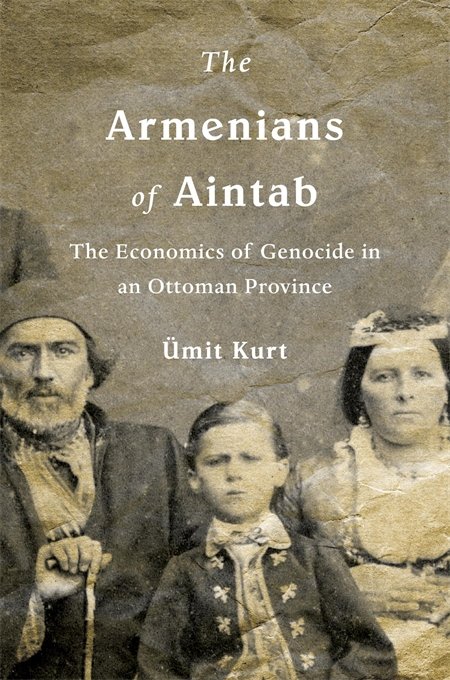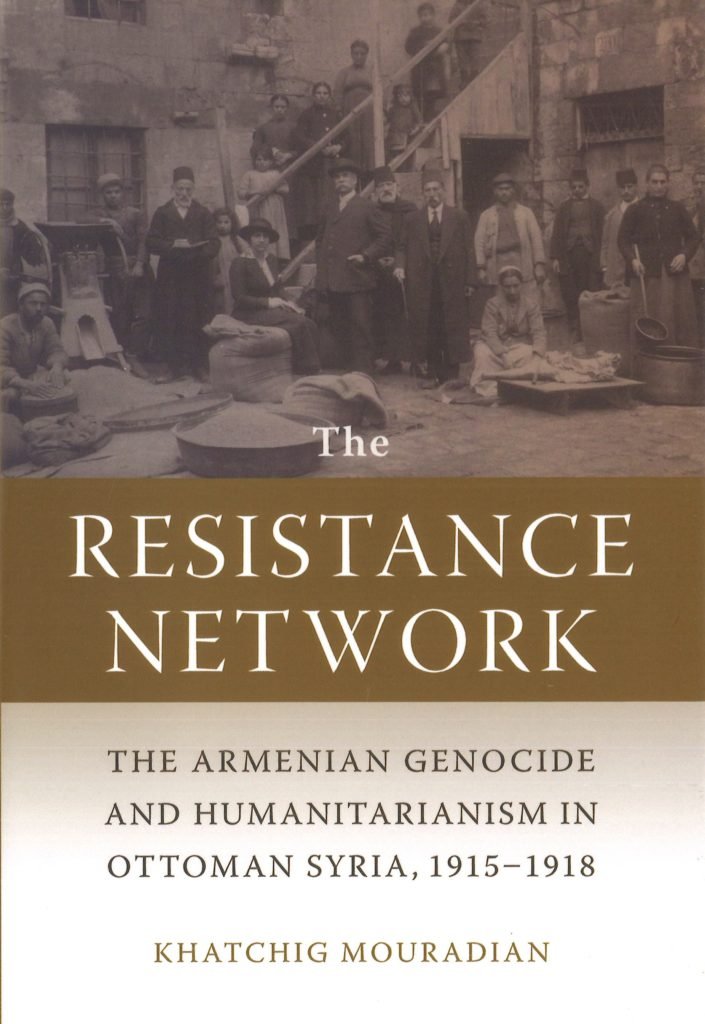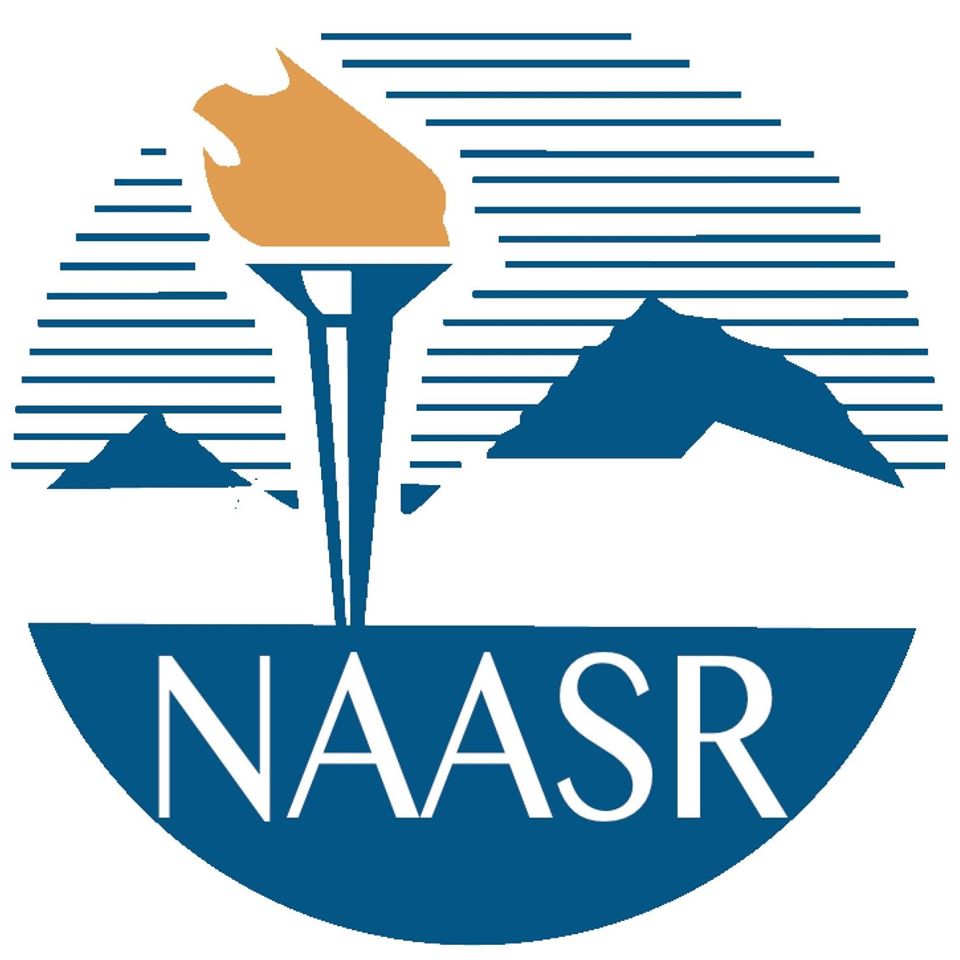BELMONT, Mass.—The National Association for Armenian Studies and Research (NAASR) is pleased to announce the 2022 Dr. Sona Aronian Book Prizes for Excellence in Armenian Studies, jointly awarded to Dr. Ümit Kurt for The Armenians of Aintab: The Economics of Genocide in an Ottoman Province (Harvard University Press, 2021) and Dr. Khatchig Mouradian for The Resistance Network: The Armenian Genocide and Humanitarianism in Ottoman Syria, 1915–1918 (Michigan State University Press, 2021); and to Dr. Abraham Terian for his annotated translation of St. Gregory of Narek’s Matean Օghbergut‘ean (Մատեան Ողբերգութեան) or Book of Lamentation, From the Depths of the Heart (Liturgical Press, 2021). The 2022 awards are for books with a 2021 publication date.
NAASR’s Aronian Book Prizes were established in 2014 by the late Dr. Aronian and Dr. Geoffrey Gibbs, to be awarded annually to outstanding scholarly works in the English language in the field of Armenian Studies and translations from Armenian into English.
NAASR’s director of Academic Affairs Marc A. Mamigonian commented that “each year it is difficult to make choices for the Dr. Sona Aronian Book Prizes—there are many superb works coming out from across the wide range of what constitutes Armenian Studies. This is a good problem to have.”
 Dr. Terian is the first repeat winner of the Aronian Prize, having earlier received the 2017 award for translation for The Festal Works of St. Gregory of Narek: Annotated Translation of the Odes, Litanies, and Encomia. Dr. Terian is professor emeritus of Armenian theology and patristics at St. Nersess Armenian Seminary, Armonk, New York. Both The Festal Works of St. Gregory of Narek and From the Depths of the Heart: Annotated Translation of the Prayers of St. Gregory of Narek, as well as other recent publications such as Moralia et Ascetica Armeniaca: The Oft-Repeated Discourses (Catholic University Press, 2022) The Life of Mashtots’ by his Disciple Koriwn (Oxford University Press, 2022) are part of Dr. Terian’s extraordinary continued scholarly productivity in his “retirement.”
Dr. Terian is the first repeat winner of the Aronian Prize, having earlier received the 2017 award for translation for The Festal Works of St. Gregory of Narek: Annotated Translation of the Odes, Litanies, and Encomia. Dr. Terian is professor emeritus of Armenian theology and patristics at St. Nersess Armenian Seminary, Armonk, New York. Both The Festal Works of St. Gregory of Narek and From the Depths of the Heart: Annotated Translation of the Prayers of St. Gregory of Narek, as well as other recent publications such as Moralia et Ascetica Armeniaca: The Oft-Repeated Discourses (Catholic University Press, 2022) The Life of Mashtots’ by his Disciple Koriwn (Oxford University Press, 2022) are part of Dr. Terian’s extraordinary continued scholarly productivity in his “retirement.”
Reached by email, Dr. Terian modestly replied, “Thank you for the unexpected award, especially to a previous recipient of Dr. Sona Aronian book prize for translation from Armenian into English. Were it not for the inspiring text by St. Gregory of Narek my translation would have been insignificant.”

Dr. Kurt is assistant professor in the School of Humanities, University of Newcastle, New South Wales. Kurt, born and raised in Aintab (today Gaziantep, Turkey), was astonished to learn that his hometown once had a large and active Armenian community. In The Armenians of Aintab, Dr. Kurt explores the Armenian dispossession that produced the homogeneously Turkish city in which he grew up. In particular, he examines the population that gained from ethnic cleansing. Those who benefited most—provincial elites, wealthy landowners, state officials, and merchants who accumulated Armenian capital—in turn financed the nationalist movement that brought the modern Turkish republic into being. The economic elite of Aintab was thus reconstituted along both ethnic and political lines.
Via email, Dr. Kurt reflected that “as a historian and perhaps even a narrator, it is very difficult to separate my research topic from my personal history, especially when I am working on the dark annals of my own country’s history. I am sometimes a passive agent and sometimes active. It starts with my upbringing and continues in my education and, in fact, is with me, my whole life. At some point, ‘your’ people’s history became part and parcel of ‘my own history.’” He continues, “I did not own your people’s history; on the contrary, it came to own me. The Armenians of Aintab is an outcome of such a long journey. This award is so meaningful and extremely important to me in terms of showcasing the truth and honesty of my work. And I am so happy that it has been confirmed and crowned by such a special prize. My only wish and hope is that my work will open new avenues and paths for further research and researchers.”

Dr. Mouradian is the Armenian and Georgian Area Specialist at the Library of Congress and a lecturer in Middle Eastern, South Asian, and African Studies at Columbia University. The Resistance Network is the history of an underground network of humanitarians, missionaries and diplomats in Ottoman Syria who helped save the lives of thousands during the Armenian Genocide. Dr. Mouradian’s work challenges depictions of Armenians as passive victims of violence and subjects of humanitarianism, demonstrating the key role they played in organizing a humanitarian resistance against the destruction of their people. He ultimately argues that, despite the violent and systematic mechanisms of control and destruction in the cities, concentration camps, and massacre sites in this region, the genocide of the Armenians did not progress unhindered—unarmed resistance proved an important factor in saving countless lives.
Responding to the news of the prize, Dr. Mouradian connected the history he explored in the book with the current moment. “In these challenging times for the Armenian nation, I derive strength and hope from the resistance network. These men, women and, yes, children, demonstrated that resistance is possible even in the darkest moments of a nation’s history.” He added, “All I did was reconstruct their stories and amplify their voices. It is they who deserve the recognition. Their gift to me—and, hopefully, us—is the realization that if they could do it then, we can do it now. It’s an honor to share this prize with my colleague, the indefatigable Ümit Kurt. This prize is also testament to Taner Akçam’s ongoing impact on a number of fields not just through his own work, but that of his PhD students. Thank you, NAASR, for this award.”
Authors or publishers wishing to submit books for consideration for future Aronian Prizes may contact Mamigonian at marc@naasr.org.



Be the first to comment